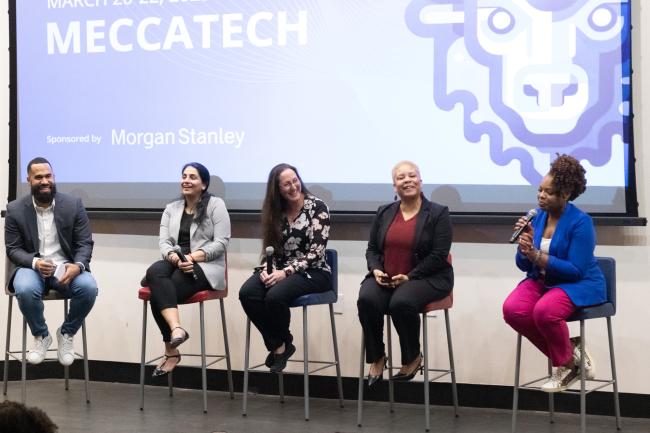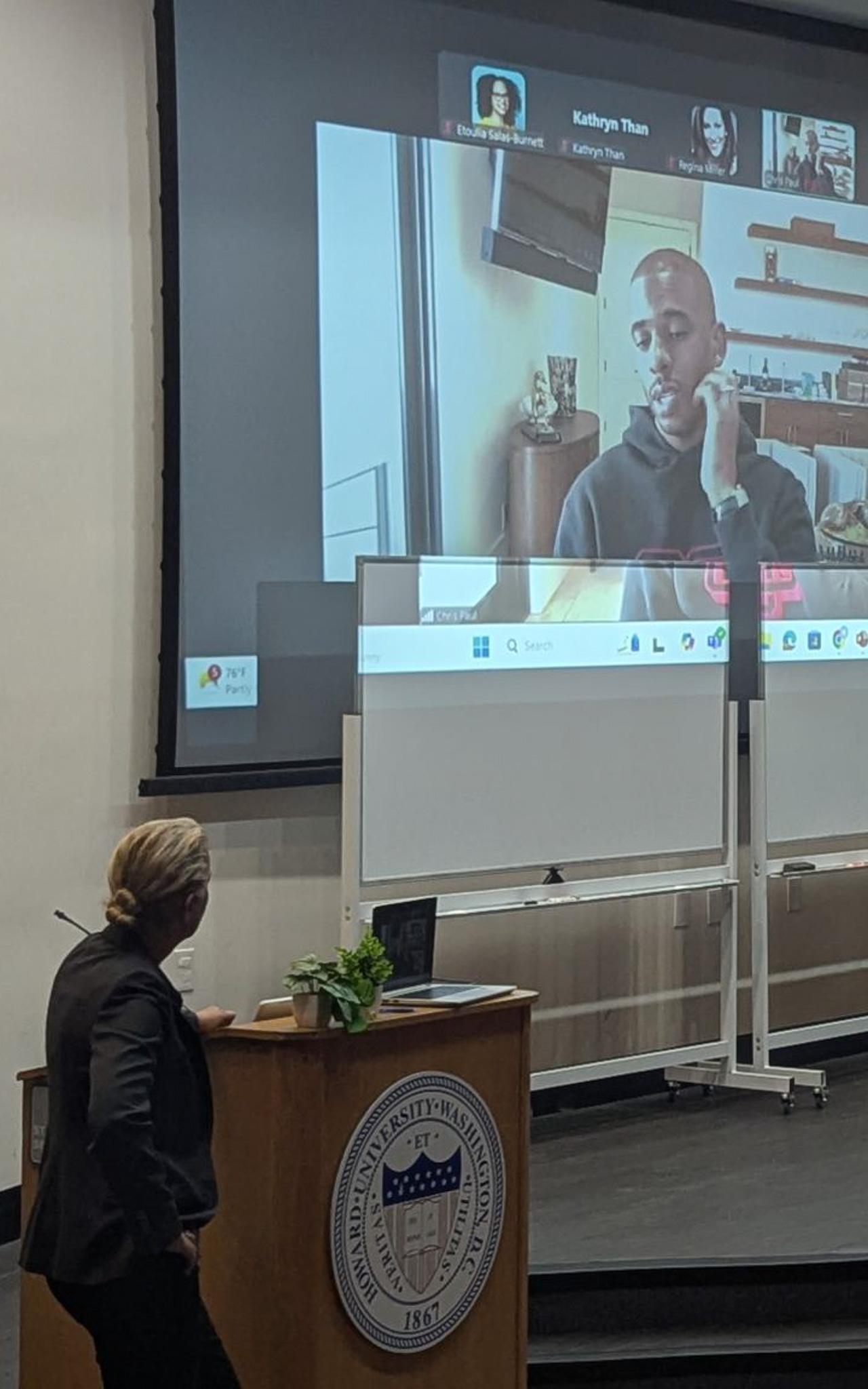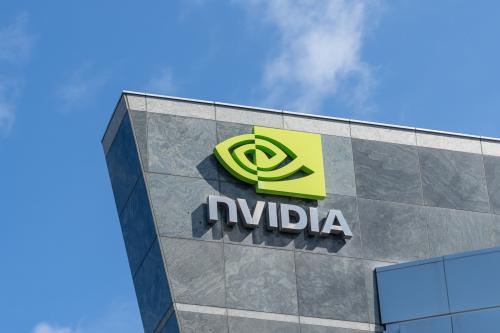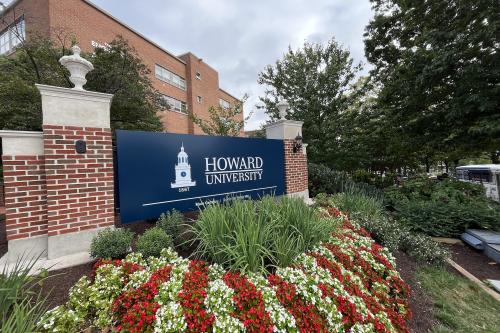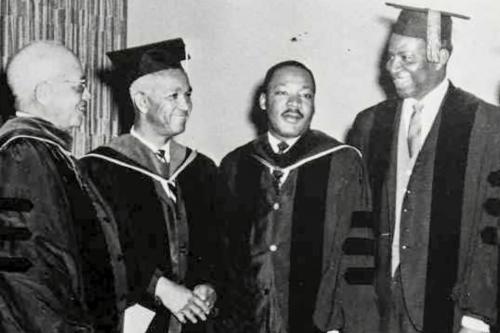Despite only recently reacquiring its R1 status as an institution, Howard University has long positioned itself as a bastion for innovation and impactful research.
For the past decade, the BisonHacks event has been one such example. Each winter, Howard students from various backgrounds and disciplines participate in the 24-hour “hackathon” hosted by the University’s Center for Digital Business, where they partner in teams to develop technological solutions for some of our planet’s most salient problems.
Initially the brainchild of Allison Morgan Bryant, Ph.D. (BBA ’01), now the vice president of corporate relations for the University, the program is currently administered by Etoulia Salas-Burnett, MSEd (BBA ’12), the Center for Digital Business’ inaugural executive director. The competition, while fierce, is also flexible: Salas-Burnett noted that while some come to BisonHacks with an established plan, ideas — and even alliances — are sometimes forged on the spot.
“People work in teams of three to five,” Salas-Burnett explained. “You don’t have to know how to code in order to participate in the competition, and you work together with your team to identify a problem that you want to solve. Maybe they’ve already decided to tackle a specific issue. Some people meet folks before the competition starts and make a team. It’s really flexible in that way.”
This year’s BisonHacks transpired on February 22 and 23 at the Howard University School of Business; its theme, “Leveraging AI for Truth & Service,” aimed to “challeng[e] participants to harness the power of artificial intelligence to create projects that embody these values and make a meaningful impact on the world,” per the event’s website.
Salas-Burnett elaborated that the only requirements to each project were the usage of AI towards its solution and an alignment with the University’s core values. The rest was left to the students and their imaginations.
“A project can be on election integrity, diabetes, education, anything in-between,” she said. “It could be a campus shuttle service. There’s a really broad range of topics for students to choose.”
Throughout the day (and night), participants have access to on-site volunteer mentors who lend their business and technical expertise to each project. This year, BisonHacks offered mini workshops designed to augment specific skills in furtherance of a team’s idea. At the event’s conclusion, each team presents a three-minute pitch of their product and its importance to a panel of judges who deliberate before selecting a winner.
“This year, we had some fantastic projects come out of the event—some that the judges even said were in a position to potentially go to market very soon,” Salas-Burnett said. “Traditionally speaking, most of the people who participate in BisonHacks are first timers, so creating that space for empowerment and connection is important.”
While one may expect those with coding familiarity to be at an advantage, Salas-Burnett said that lack of prior experience has not been a barrier to entry or success. The event has even welcomed students from the Chadwick A. Boseman College of Fine Arts, and the group who placed second at BisonHacks 2024 comprised four seniors from different, non-coding disciplines who met the morning of the hackathon.
“I don’t think that was their expectation, that they were going to win,” Salas-Burnett said. “They just wanted to experience something different. It just goes to show all of the majors are valued. All of them are important and needed, and those perspectives are valuable when you’re thinking about creating a product.”
A lot of people associate hackathons with folks who know how to code—computer science majors or software engineers. But it’s not just for people with hard technical experience.”


